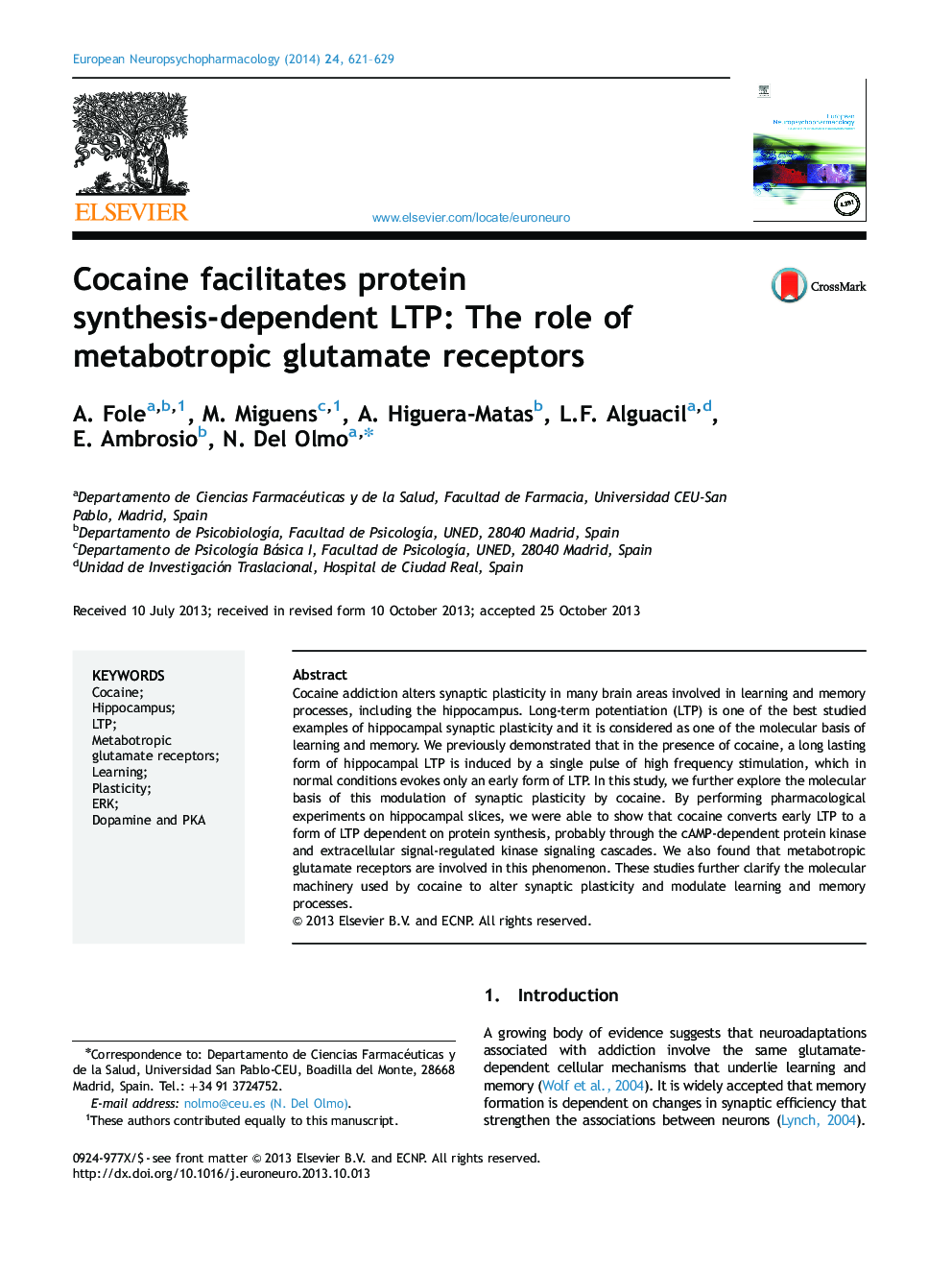| Article ID | Journal | Published Year | Pages | File Type |
|---|---|---|---|---|
| 10299260 | European Neuropsychopharmacology | 2014 | 9 Pages |
Abstract
Cocaine addiction alters synaptic plasticity in many brain areas involved in learning and memory processes, including the hippocampus. Long-term potentiation (LTP) is one of the best studied examples of hippocampal synaptic plasticity and it is considered as one of the molecular basis of learning and memory. We previously demonstrated that in the presence of cocaine, a long lasting form of hippocampal LTP is induced by a single pulse of high frequency stimulation, which in normal conditions evokes only an early form of LTP. In this study, we further explore the molecular basis of this modulation of synaptic plasticity by cocaine. By performing pharmacological experiments on hippocampal slices, we were able to show that cocaine converts early LTP to a form of LTP dependent on protein synthesis, probably through the cAMP-dependent protein kinase and extracellular signal-regulated kinase signaling cascades. We also found that metabotropic glutamate receptors are involved in this phenomenon. These studies further clarify the molecular machinery used by cocaine to alter synaptic plasticity and modulate learning and memory processes.
Related Topics
Life Sciences
Neuroscience
Biological Psychiatry
Authors
A. Fole, M. Miguens, A. Higuera-Matas, L.F. Alguacil, E. Ambrosio, N. Del Olmo,
